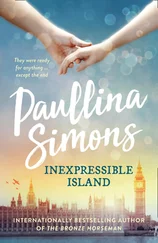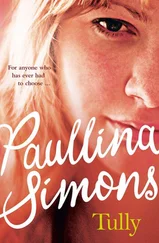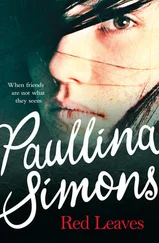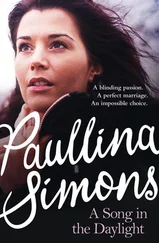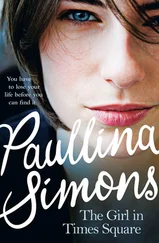“Let me ask you, Major,” Slonko said amiably, downing his drink and tapping the empty glass on the wooden table. “If you yourself were going to ask for one thing before you were put to death, what would it be?”
“To have a cigarette,” Alexander replied.
“Not for mercy?”
“No.”
“Do you know your father also begged me to show you mercy?”
Alexander paled.
Slonko said in English, “Your mother begged me to fuck her but I refused.” He paused, and then smiled. “At first.”
Alexander ground his teeth together. Nothing else on him moved. In Russian he said, “Are you speaking to me , comrade? Because I speak only Russian. They tried to get me to learn French in school, but I’m afraid I wasn’t very good at languages.” After that he said nothing. His mouth was dry.
“I’m going to ask you again,” said Slonko. “I’m going to ask you patiently and politely. Are you Alexander Barrington, son of Jane and Harold Barrington?”
“I will answer you patiently and politely,” said Alexander patiently and politely. “Though I have been asked this a hundred and fifty times already. I am not.”
“But Major, why would the person who told us this lie? Where would he get this information from? He couldn’t have made it up. He knew details about your life no one could have had any idea about.”
“Where is this person?” Alexander said. “I’d like to see him, I’d like to ask him if he is sure it’s me he is talking about. I for one am certain he made a mistake.”
“No, he is sure you’re Alexander Barrington.”
Alexander raised his voice. “If he is so sure, let him identify me. He is an upstanding comrade, this man you talk about? He is a proper Soviet citizen? He is not a traitor, he has not spat on his country? He served it proudly as I have? He’s been decorated, he never shied away from battle, no matter how one-sided, no matter how hard-won? This man you speak of, he is an example to us all, correct? Let me meet the paragon of new Soviet consciousness. Let him look at me, point his finger and say, “This is Alexander Barrington.” Alexander smiled. “And then we will see.”
Now it was Slonko’s turn to pale. “I came from Leningrad to talk to you like a reasonable man,” he hissed, losing some of that effacing false humility, baring his teeth, narrowing his eyes.
“And I am certainly glad to talk to you,” Alexander said, feeling his own dark eyes darken. “As always I am happy to talk to an earnest Soviet operator, who seeks the truth, who will stop at nothing to find it. And I want to help you. Bring my accuser here. Let’s clear up this matter once and for all.” Alexander stood up and took one half-menacing step in the direction of the desk. “But once we get this cleared up, I want my besmirched name back.”
“Which name would that be, Major?”
“My rightful name. Alexander Belov.”
“Do you know that you look like your mother?” Slonko said suddenly.
“My mother has long died. Of typhus. In Krasnodar. Surely your moles told you that?”
“I’m talking about your real mother. The woman who would suck off any guard to get a shot of vodka.”
Alexander did not flinch. “Interesting. But I don’t think my mother, who was a farmer’s wife, had ever seen a guard.”
Slonko spat and left.
A guard came to stand over Alexander. It was not Corporal Ivanov. All Alexander wanted to do was close his eyes and fall asleep. But every time he closed his eyes, the guard rammed the butt of the rifle under his chin with a call to wake up. Alexander had to learn to sleep with his eyes open.
The bleak sun set and the room became dark. The corporal turned on the bright light, and shined it into Alexander’s face. He became rougher with the rifle. The third time he tried to slam the barrel into Alexander’s throat, Alexander grabbed the barrel, twisted it out of the guard’s hands and turned it on him. Standing over him, he said, “All you have to do is ask me not to fall asleep. No stronger measures are required. Can you do that?”
“Give me my rifle back.”
“Answer me.”
“Yes, I can do that.”
He gave the guard the weapon back. The guard took it, and struck Alexander in the forehead with the butt of the rifle. He flinched, saw black for a moment but made no sound. The guard left the classroom and returned shortly with his replacement, Corporal Ivanov, who said, “Go ahead, Major. Close your eyes. When they come I will yell. You will open your eyes then, yes?”
“Instantly,” Alexander said in a grateful voice, closing his eyes in the most uncomfortable of chairs, which had a short back and no arms. He hoped he wouldn’t fall over.
“That’s what they do, you know,” he heard Ivanov say. “They keep you from sleeping day and night, they don’t feed you, they keep you naked, wet, cold, in darkness at day and in light at night until you break down and say white is black and black is white and sign their fucking paper.”
“Black is white,” Alexander said without opening his eyes.
“Corporal Boris Maikov signed their fucking paper,” said Ivanov. “He was shot yesterday.”
“What about the other one? Ouspensky?”
“He’s back in the infirmary. They realized he had only one lung. They’re waiting for him to die. Why waste a bullet on him?”
Alexander was too exhausted to speak. Ivanov lowered his voice another notch, and said, “Major, I heard Slonko arguing with Mitterand a few hours ago. He said to Mitterand, ‘Don’t worry. I will break him or he will die.’”
Alexander made no reply.
He heard Ivanov’s whispering. “Don’t let them break you, Major.”
Alexander didn’t answer. He was sleeping.
Leningrad, 1935
In Leningrad, the Barringtons found two small rooms next to each other in a communal apartment in a ramshackle nineteenth-century building. Alexander found a new school, unpacked his few books, his clothes, and continued being fifteen. Harold found work as a carpenter in a table-making factory. Jane stayed home and drank. Alexander stayed away from the two rooms they called home. He spent much of his time walking around Leningrad, which he liked better than Moscow. The pastel stucco buildings, the white nights, the river Neva; he found Leningrad historic and romantic with its gardens and palaces and wide boulevards and small rivers and canals criss-crossing the never-sleeping city.
At sixteen, as he was obliged to, Alexander registered for the Red Army as Alexander Barrington. That was his rebellion. He was not changing his name.
In their communal apartment they tried to keep to themselves—having so little for each other and nothing for other people—but a married couple on the second floor of their building, Svetlana and Vladimir Visselsky, made friendly approaches. They lived in one room with Vladimir’s mother, and at first were quite taken with the Barringtons and lightly envious of the two rooms they had for themselves. Vladimir was a road engineer, Svetlana worked at a local library and kept telling Jane there was a job for her there, too. Jane got a job there, but was unable to get up in the mornings to go to work.
Alexander liked Svetlana. In her late thirties, she was well-dressed, attractive, witty. Alexander liked the way she talked to him, almost as if he were an adult. He was restless during the summer of 1935. Emotionally and financially broke, his parents did not rent a dacha. The summer in the city without a way to make new friends did not appeal much to Alexander, who did nothing but walk around Leningrad by day and read by night. He got a library card where Svetlana worked, and often found himself sitting and talking to her. And, very occasionally, reading. Frequently she walked home with him.
Читать дальше


